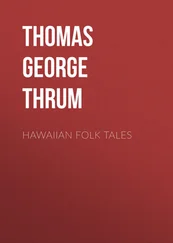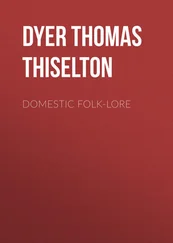Thomas Dyer - Folk-lore of Shakespeare
Здесь есть возможность читать онлайн «Thomas Dyer - Folk-lore of Shakespeare» — ознакомительный отрывок электронной книги совершенно бесплатно, а после прочтения отрывка купить полную версию. В некоторых случаях можно слушать аудио, скачать через торрент в формате fb2 и присутствует краткое содержание. Жанр: foreign_antique, foreign_prose, на английском языке. Описание произведения, (предисловие) а так же отзывы посетителей доступны на портале библиотеки ЛибКат.
- Название:Folk-lore of Shakespeare
- Автор:
- Жанр:
- Год:неизвестен
- ISBN:нет данных
- Рейтинг книги:4 / 5. Голосов: 1
-
Избранное:Добавить в избранное
- Отзывы:
-
Ваша оценка:
- 80
- 1
- 2
- 3
- 4
- 5
Folk-lore of Shakespeare: краткое содержание, описание и аннотация
Предлагаем к чтению аннотацию, описание, краткое содержание или предисловие (зависит от того, что написал сам автор книги «Folk-lore of Shakespeare»). Если вы не нашли необходимую информацию о книге — напишите в комментариях, мы постараемся отыскать её.
Folk-lore of Shakespeare — читать онлайн ознакомительный отрывок
Ниже представлен текст книги, разбитый по страницам. Система сохранения места последней прочитанной страницы, позволяет с удобством читать онлайн бесплатно книгу «Folk-lore of Shakespeare», без необходимости каждый раз заново искать на чём Вы остановились. Поставьте закладку, и сможете в любой момент перейти на страницу, на которой закончили чтение.
Интервал:
Закладка:
The phrase, “Cock-a-hoop” 180 180 It is also an ale-house sign.
– which occurs in “Romeo and Juliet” (i. 5),
“You’ll make a mutiny among my guests!
You will set cock-a-hoop! you’ll be the man!”
– no doubt refers to a reckless person, who takes the cock or tap out of a cask, and lays it on the top or hoop of the barrel, thus letting all the contents of the cask run out. Formerly, a quart pot was called a hoop, being formed of staves bound together with hoops like barrels. There were generally three hoops to such a pot; hence, in “2 Henry VI.” (iv. 2), one of Jack Cade’s popular reformations was to increase their number: “the three-hooped pot shall have ten hoops; and I will make it felony to drink small beer.” Some, however, consider the term Cock-a-hoop 181 181 See Dyce’s “Glossary to Shakespeare,” p. 85.
refers to the boastful crowing of the cock.
In “King Lear” (iii. 2) Shakespeare speaks of the “cataracts and hurricanoes” as having
“drenched our steeples, drowned the cocks!”
Vanes on the tops of steeples were in days gone by made in the form of a cock – hence weathercocks – and put up, in papal times, to remind the clergy of watchfulness. 182 182 See “Book of Days,” 1863, vol. i. p. 157.
Apart, too, from symbolism, the large tail of the cock was well adapted to turn with the wind. 183 183 In “King Lear” (iv. 6), where Edgar says: “Yond tall anchoring bark, Diminish’d to her cock; her cock, a buoy Almost too small for sight.” the word “cock” is an abbreviation for cock-boat.
Cormorant. The proverbial voracity of this bird 184 184 For superstitions associated with this bird, see Brand’s “Pop. Antiq.,” 1849, vol. iii. p. 218.
gave rise to a man of large appetite being likened to it, a sense in which Shakespeare employs the word, as in “Coriolanus” (i. 1): “the cormorant belly;” in “Love’s Labour’s Lost” (i. 1): “cormorant devouring Time;” and in “Troilus and Cressida” (ii. 2): “this cormorant war.” “Although,” says Mr. Harting, 185 185 “Ornithology of Shakespeare,” p. 260.
“Shakespeare mentions the cormorant in several of his plays, he has nowhere alluded to the sport of using these birds, when trained, for fishing; a fact which is singular, since he often speaks of the then popular pastime of hawking, and he did not die until some years after James I. had made fishing with cormorants a fashionable amusement.”
Crow. This has from the earliest times been reckoned a bird of bad omen; and in “Julius Cæsar” (v. 1), Cassius, on the eve of battle, predicted a defeat, because, to use his own words:
“crows and kites
Fly o’er our heads and downward look on us,
As we were sickly prey: their shadows seem
A canopy most fatal, under which
Our army lies, ready to give up the ghost.”
Allusions to the same superstition occur in “Troilus and Cressida” (i. 2); “King John” (v. 2), etc. Vergil (“Bucolic,” i. 18) mentions the croaking of the crow as a bad omen:
“Sæpe sinistra cava prædixit ab ilice cornix.”
And Butler, in his “Hudibras” (part ii. canto 3), remarks:
“Is it not ominous in all countries,
When crows and ravens croak upon trees.”
Even children, nowadays, regard with no friendly feelings this bird of ill-omen; 186 186 See “Folk-Lore Record,” 1879, vol. i. p. 52; Henderson’s “Folk-Lore of Northern Counties,” 1879, pp. 25, 126, 277.
and in the north of England there is a rhyme to the following effect:
“Crow, crow, get out of my sight,
Or else I’ll eat thy liver and lights.”
Among other allusions made by Shakespeare to the crow may be noticed the crow-keeper – a person employed to drive away crows from the fields. At present, 187 187 Nares’s “Glossary,” vol. i. p. 208.
in all the midland counties, a boy set to drive away the birds is said to keep birds; hence, a stuffed figure, now called a scarecrow , was also called a crow-keeper, as in “King Lear” (iv. 6): “That fellow handles his bow like a crow-keeper.”
One of Tusser’s directions for September is:
“No sooner a-sowing, but out by-and-by,
With mother or boy that alarum can cry:
And let them be armed with a sling or a bow,
To scare away pigeon, the rook, or the crow.”
In “Romeo and Juliet” (i. 4) a scarecrow seems meant:
“Bearing a Tartar’s painted bow of lath,
Scaring the ladies like a crow-keeper.”
Among further references to this practice is that in “1 Henry VI.” (i. 4), where Lord Talbot relates that, when a prisoner in France, he was publicly exhibited in the market-place:
“Here, said they, is the terror of the French,
The scarecrow that affrights our children so.” 188 188 Cf. “Henry IV.,” iv. 2.
And once more, in “Measure for Measure” (ii. 1):
“We must not make a scarecrow of the law,
Setting it up to fear the birds of prey,
And let it keep one shape, till custom make it
Their perch and not their terror.”
The phrase “to pluck a crow” is to complain good-naturedly, but reproachfully, and to threaten retaliation. 189 189 Miss Baker’s “Northamptonshire Glossary,” vol. ii. p. 161; Brand’s “Pop. Antiq.,” 1849, vol. iii. p. 393.
It occurs in “Comedy of Errors” (iii. 1): “We’ll pluck a crow together.” Sometimes the word pull is substituted for pluck, as in Butler’s “Hudibras” (part ii. canto 2):
“If not, resolve before we go
That you and I must pull a crow.”
The crow has been regarded as the emblem of darkness, which has not escaped the notice of Shakespeare, who, in “Pericles” (iv. introd.), speaking of the white dove, says:
“With the dove of Paphos might the crow
Vie feathers white.” 190 190 Cf. “Romeo and Juliet,” i. 5.
Cuckoo. Many superstitions have clustered round the cuckoo, and both in this country and abroad it is looked upon as a mysterious bird, being supposed to possess the gift of second-sight, a notion referred to in “Love’s Labour’s Lost” (v. 2):
“Cuckoo, cuckoo: 191 191 “A cuckold being called from the cuckoo, the note of that bird was supposed to prognosticate that destiny.” – Nares’s “Glossary,” vol. i. p. 212.
O word of fear,
Unpleasing to a married ear.”
And again, in “A Midsummer-Night’s Dream” (iii. 1), Bottom sings:
“The plain-song cuckoo gray,
Whose note full many a man doth mark,
And dares not answer nay.”
It is still a common idea that the cuckoo, if asked, will tell any one, by the repetition of its cries, how long he has to live. The country lasses in Sweden count the cuckoo’s call to ascertain how many years they have to remain unmarried, but they generally shut their ears and run away on hearing it a few times. 192 192 Engel’s “Musical Myths and Facts,” 1876, vol. i. p. 9.
Among the Germans the notes of the cuckoo, when heard in spring for the first time, are considered a good omen. Cæsarius (1222) tells us of a convertite who was about to become a monk, but changed his mind on hearing the cuckoo’s call, and counting twenty-two repetitions of it. “Come,” said he, “I have certainly twenty-two years still to live, and why should I mortify myself during all that time? I will go back to the world, enjoy its delights for twenty years, and devote the remaining two to penitence.” 193 193 See Kelly’s “Indo-European Folk-Lore,” 1863, p. 99; “English Folk-Lore,” 1879, pp. 55-62.
In England the peasantry salute the cuckoo with the following invocation:
Интервал:
Закладка:
Похожие книги на «Folk-lore of Shakespeare»
Представляем Вашему вниманию похожие книги на «Folk-lore of Shakespeare» списком для выбора. Мы отобрали схожую по названию и смыслу литературу в надежде предоставить читателям больше вариантов отыскать новые, интересные, ещё непрочитанные произведения.
Обсуждение, отзывы о книге «Folk-lore of Shakespeare» и просто собственные мнения читателей. Оставьте ваши комментарии, напишите, что Вы думаете о произведении, его смысле или главных героях. Укажите что конкретно понравилось, а что нет, и почему Вы так считаете.












